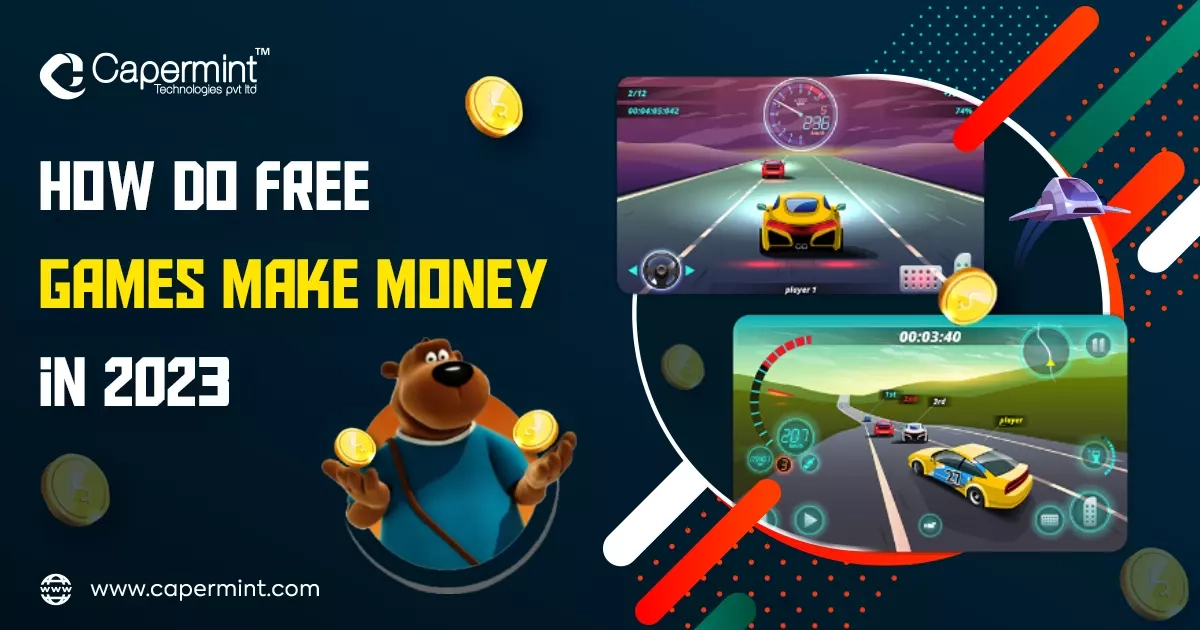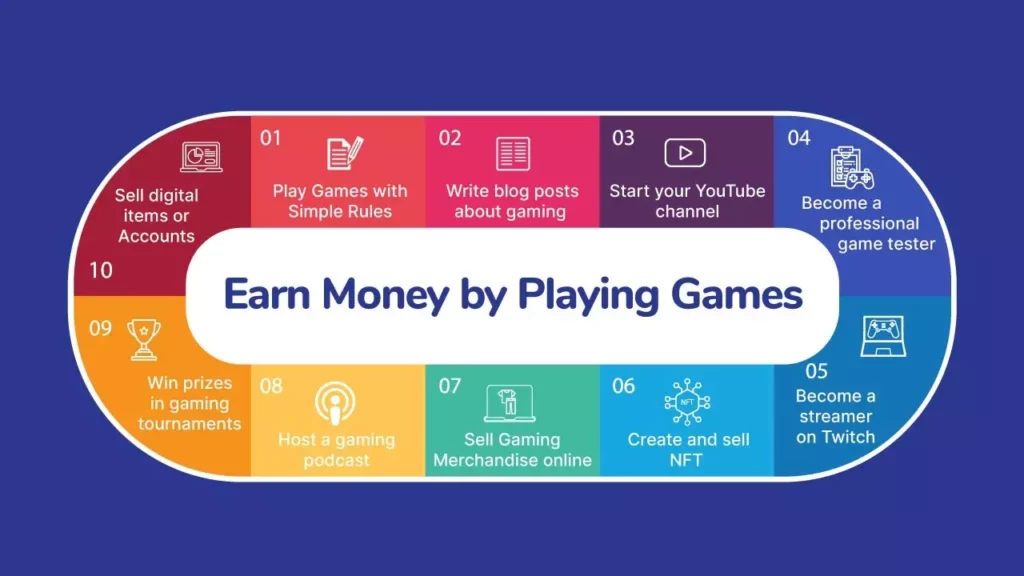How Play to Earn Games Are Creating Opportunities for Gamers to Profit
How Play to Earn Games Are Creating Opportunities for Gamers to Profit
Blog Article
Why Play-to-Earn Gamings Are the Future of Online Enjoyment
The development of play-to-earn video games is reshaping the on-line amusement landscape by incorporating financial rewards that allow gamers to monetize their involvement in immersive virtual environments. This version, underpinned by blockchain modern technology, not only enhances gamer contentment with substantial rewards yet also fosters a feeling of community and ownership (play to earn games).
The Rise of Play-to-Earn Designs
Over the last few years, the concept of play-to-earn designs has actually gotten significant grip, transforming the landscape of on the internet enjoyment. This ingenious approach allows players to generate real-world earnings through their involvement in gaming ecosystems. Unlike standard gaming designs that mainly concentrate on home entertainment and consumerism, play-to-earn video games include blockchain modern technology to allow gamers to earn copyright or electronic possessions that hold innate worth.
The rise of these models can be credited to a number of aspects, including innovations in innovation, the increasing approval of cryptocurrencies, and a growing wish amongst gamers for more fulfilling experiences. Gamers are no longer just passive customers; they are energetic participants that can monetize their skills and time (play to earn games). This change has produced new opportunities for game programmers to craft immersive experiences that incentivize engagement and creative thinking
Furthermore, the worldwide pandemic has accelerated the rate of interest in on-line pc gaming as a viable income source, additional strengthening the allure of play-to-earn structures. Therefore, a varied array of video games across various categories is emerging, each offering one-of-a-kind auto mechanics and benefits. The play-to-earn design is positioned to redefine the video gaming industry, fostering a community-focused setting where players can prosper both socially and economically.
Financial Motivations for Players
Earning tangible benefits has become a major driving force behind the popularity of play-to-earn video games, attracting a varied player base eager to maximize their gaming skills. Unlike conventional gaming versions, where gamers spend effort and time without economic return, play-to-earn games offer a distinct financial structure that enables players to monetize their gameplay.
In these settings, gamers can earn cryptocurrencies, non-fungible tokens (NFTs), or in-game properties that can be traded or marketed on numerous marketplaces. This direct financial reward not just boosts gamer engagement yet also promotes a feeling of ownership over their digital assets. Players are inspired to invest even more time and energy into gameplay as their skills convert right into real-world value.

Area Engagement and Growth
A dynamic neighborhood is essential for the success and long life of play-to-earn video games, as it promotes cooperation, understanding sharing, and player retention. Active engagement among players improves the pc gaming experience, motivating them to form partnerships, share approaches, and take part in discussions. This cumulative involvement not only supports a feeling of belonging but likewise drives players to spend even more time and resources into the video game.
Additionally, communities commonly become hotbeds for material production, with gamers producing tutorials, fan art, and gameplay video clips. Such contributions intensify the video game's exposure and attract new gamers, thereby promoting natural development. Designers can take advantage of neighborhood responses to refine gameplay auto mechanics and address concerns, making players feel valued and invested in the video game's development.
Additionally, community-driven occasions, such as tournaments and joint goals, provide possibilities for players to showcase their skills and gain benefits, reinforcing their commitment to the game. As players form deeper links with each other, commitment to the video game boosts, developing a lasting ecosystem that profits both programmers and gamers. Therefore, area engagement is not just a device however a foundation for the thriving future of play-to-earn games.
Assimilation of Blockchain Modern Technology
The assimilation of blockchain modern technology is transforming just how play-to-earn video games run, enhancing both gamer experience and financial stability. By utilizing decentralized ledgers, blockchain guarantees that in-game properties are securely possessed by players, enabling real ownership of digital things. This contrasts greatly with traditional video gaming models, where gamers invest money published here and time without keeping any insurance claim to their in-game accomplishments.
Smart agreements, an important part of blockchain, automate purchases and impose game policies transparently. This minimizes the danger of fraudulence and improves count on in between designers and gamers. Gamers can trade, offer, or rent their digital properties look what i found in second markets, creating real-world financial opportunities that were previously unattainable in traditional pc gaming settings.
In addition, blockchain technology cultivates a vivid ecosystem where programmers can incentivize gamer participation with token rewards. This ingenious economic model encourages players, straightening their rate of interests with video game developers, and ultimately leading to even more lasting and interesting video gaming experiences.
Future Patterns in Video Gaming Sector
Fast advancements in modern technology are positioned to reshape the pc gaming sector in the coming years, with numerous essential trends becoming frontrunners. One famous pattern is the rise of immersive modern technologies, such as virtual truth (VIRTUAL REALITY) and increased truth (AR), which are set to redefine player experiences by producing more interactive and appealing atmospheres. As hardware abilities improve and costs decline, these modern technologies will become more easily accessible to a wider audience.

Additionally, the play-to-earn model is expected to get traction, equipping players to monetize their pc gaming skills and time. This paradigm change will certainly not just attract a new group site link of gamers however also foster an even more sustainable gaming environment. Jointly, these trends signify a transformative period for the gaming sector, where innovation and gamer engagement assemble to develop unrivaled home entertainment experiences.

Verdict
Play-to-earn video games are poised to reinvent online home entertainment by fostering financial motivations that enhance player interaction and ownership. The integration of blockchain innovation not only helps with the money making of video gaming experiences however likewise cultivates vibrant communities. As the pc gaming landscape remains to progress, the focus on energetic involvement and economic incentives will likely drive additionally development, strengthening the role of play-to-earn models as a considerable pressure in the future of the gaming market.
Unlike typical gaming designs that largely focus on home entertainment and consumerism, play-to-earn video games integrate blockchain technology to make it possible for gamers to earn copyright or digital properties that hold innate value.
The play-to-earn design is positioned to redefine the pc gaming market, cultivating a community-focused environment where players can prosper both socially and financially. play to earn games.
As gamers form much deeper links with one another, commitment to the game increases, developing a lasting community that profits both programmers and gamers.Moreover, the play-to-earn version is expected to acquire grip, empowering gamers to monetize their gaming abilities and time. Collectively, these fads represent a transformative period for the gaming market, where innovation and gamer engagement converge to produce unparalleled entertainment experiences.
Report this page